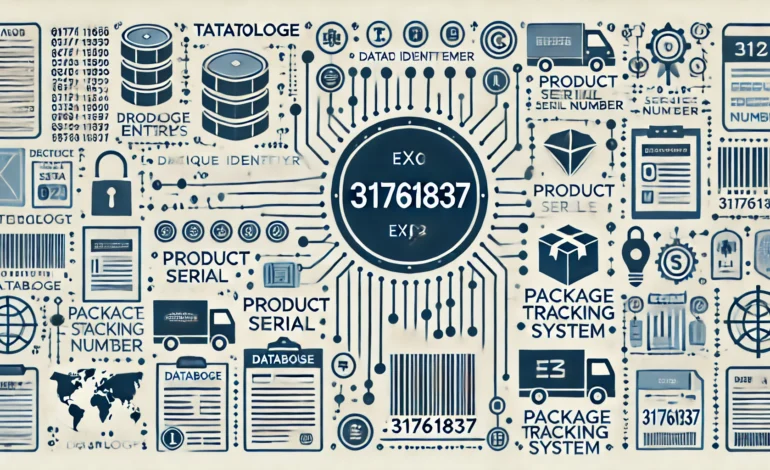What is 31761837 and Why is it Important?

When you see a number like 31761837, you might wonder what it is or why it matters. In this blog post, we’ll explain what 31761837 means, why it’s relevant, and how it may impact you. We’ll break down everything in an easy-to-understand way, so you can walk away knowing all the key details.
Understanding (31761837)
Let’s start with the basics. 31761837 could refer to many things depending on the context. It might be an ID number, a part of a database, or even a code used in certain fields. This post will explore the most common scenarios where you might come across this number.
Where Does (317 61837) Show Up?
1. Identification Numbers
In many industries, codes like 31761837 are used for identification. Companies and organizations rely on unique numbers to manage products, records, or client data. These numbers help ensure quick access to important information without confusion.
2. Technology and Software
In the tech world, numbers like 31761837 may be part of system identifiers. They can appear in tracking codes, software programs, or data logs. Tech companies often use such codes for better system organization and streamlined operations.
Why Does (317 61837) Matter?
You might be asking, “Why should I care about this number?” Here’s why it could matter to you:
- Organizational Purposes: Unique identifiers like 31761837 help businesses keep their information organized and efficient. This can be essential for customer service, inventory checks, or internal audits.
- Security and Tracking: Numbers like 31761837 could be used for security purposes. Companies can track items, data, or documents using these codes, making it easier to monitor activities or detect issues.
- Data Management: Having unique numbers helps with data sorting and retrieval. This can be vital when handling large volumes of information.
How to Interpret (317 61837)
If you come across 31761837 and don’t know what it means, here are some steps to take:
- Check the Source: Look at where you found the number. If it’s in a work email, it might be an ID related to a project or task.
- Ask for Clarification: Reach out to the person or department that provided the number. They can explain its use.
- Research It: Sometimes, a quick online search can give clues about what a number like 31761837 might represent in your context.
Benefits of Using Unique Identifiers Like (3176 1837)
Using specific numbers to identify items or records has clear advantages:
- Reduces Confusion: No two items have the same number, so it’s easy to know exactly what someone is talking about.
- Speeds Up Processes: Looking up a number is quicker than searching by description.
- Increases Security: It’s harder to forge or tamper with systems that use unique IDs.
Real-Life Examples of Similar Numbers
Example 1: Serial Numbers
You see serial numbers everywhere—from your phone to your car. They work just like 31761837 by uniquely identifying products.
Example 2: Order Tracking
When you order a package online, you get a tracking number. This number, similar to 31761837, helps you and the delivery company keep track of the item’s location and status.
Conclusion
Understanding the role of 31761837 can help you in various situations, whether it’s related to work, technology, or general record-keeping. Knowing that this number acts as an identifier can take the mystery out of its presence.
FAQs
1. What is the main purpose of a number like 31761837?
Numbers like 31761837 act as unique identifiers. They help organizations track and manage data efficiently.
2. Where can I find numbers like 31761837?
These numbers can show up in databases, on product labels, in emails, or as part of software programs.
3. Can numbers like 317618 37 be reused?
Typically, unique numbers are not reused, especially in secure or official systems. This prevents confusion or errors.
4. How can I know what 31761 837 means in my situation?
Check the context or ask the person who provided it. Each organization may use such numbers for different reasons.
Numbers like 31761837 may seem random, but they serve important purposes in keeping systems organized and secure. Now you know what they are and why they matter!






